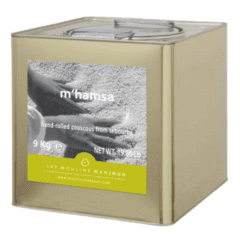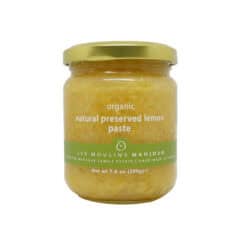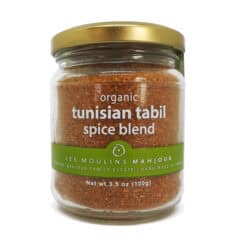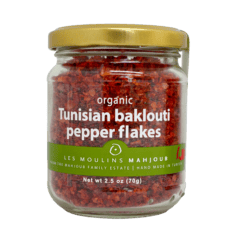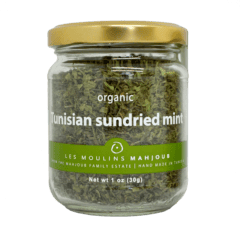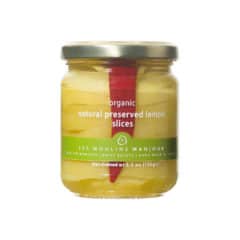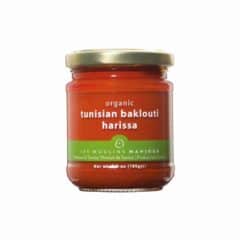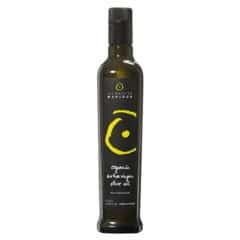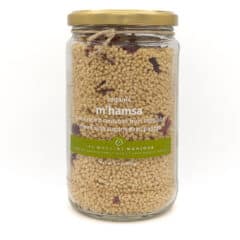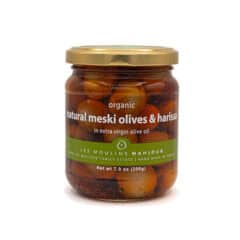M’hamsa, which translates to “hand-rolled”, exemplifies the core of the traditional Berber production method. Semolina is combined with olive oil, salt, water and sundried for 10 days, which give them a nutty, earthy flavor unlike any other couscous. Couscous is complementary to almost all North African and Mediterranean cuisine, including stews, meat, and fish dishes…
No other ingredient, apart from Harissa, exemplifies Tunisian cooking as well as preserved lemons. Your favorite lemons are now blended into a paste. As with all of the Mahjoub products, this is produced using traditional farming methods with no additives or artificial processes. These petite Tunisian lemons are known for their intensity and concentrated citrus…
Tabil is a classic Berber/Amazigh spice blend used in kitchens all around Tunisia. Thought to be an “extension” of harissa, tabil represents the soul of the mother and her flavorful cooking; every mother might have a unique spice blend. The Mahjoub tabil is a bouquet of spices composed of three quarters of coriander, and the…
Baklouti peppers are harvested at the peak of their maturity and then dried in the sun before getting reduced to small flakes. This process of drying, preserving, and concentrating flavor has been practiced by the Berbers for centuries. The whole peppers are dried in the warm sun for 5-7 days, making them crunchy in texture.…
Mint is at the heart of Berber cuisine and used in in a variety of Tunisian recipes. Dried mint in particular is prized for its delicate, fresh addition to savory dishes. This mint starts as fresh spearmint (mentha spicata) cultivated in the fields and orchards of the Mahjoub farms in Tebourba and dried in the…
No other ingredient, apart from Harissa, exemplifies Tunisian cooking as well as preserved lemons. Your favorite lemons are now sliced in a smaller jar for easy use, then preserved – while the Mahjoubs add a mild red pepper to the jar to create an additional layer of flavor. As with all of the Mahjoub products,…
Baklouti Harissa is made from red baklouti peppers, Mahjoub EVOO, garlic, salt, coriander, and caraway seeds —all organic. Baklouti peppers (Capsicum annuum) are a traditional pepper used in Tunisian cuisine. This Tunisian condiment adds a smoky heat and spice to enhance almost any dish. This condiment is truly the “terroir of Tunisia.”
Nestled in the fertile Mejerda Valley of the south Mediterranean, women farmers handpick Chetoui olives from unspoiled sun-soaked Tunisian land. Stone milling and decanting a la feuille (by hand) creates an elegant oil for both cooking and finishing. Soft and clean on the palate, this unfiltered oil is the color of green apples with aromas…
In Tunisia, this product is called M’hamsa, which translates into sun-dried wheat grains. Made from a North African semolina made from crushed durum wheat, M’hamsa is produced in the traditional Berber method. Production begins by mixing semolina with olive oil, water, and salt, which is then pushed through screens or a sieve to create small…
This plump green olive variety, known for its meaty flesh, is native to Tunisia. To preserve the integrity of the fruit in the process of debittering, instead of crushing the olives, the Mahjoubs carefully open each olive with a slight incision by hand. Once they are cured for a minimum of nine months, the olives are bottled in Mahjoub…
